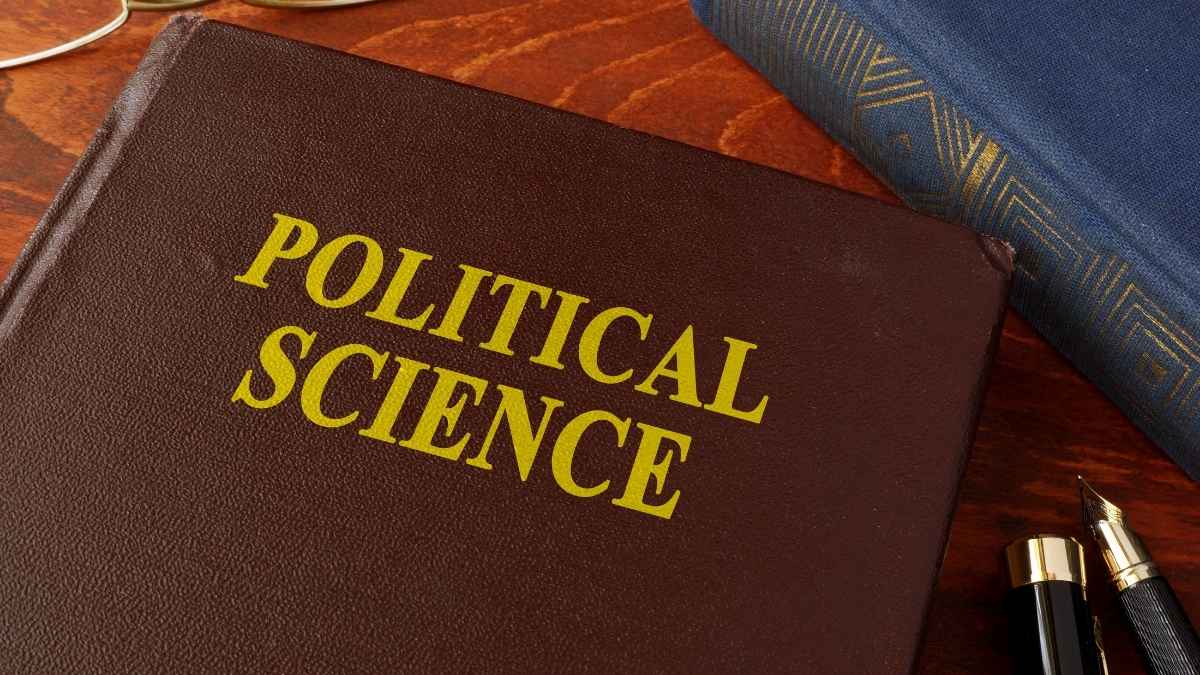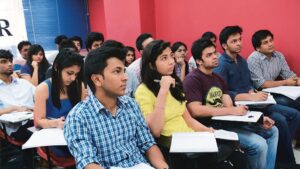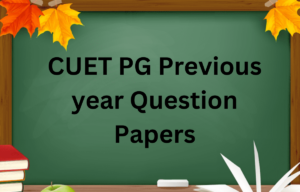The Common University Entrance Test for the admission into academic session 2026-27 is expected to be conducted by the National Testing Agency at various exam centers across the nation in June 2026. All the students who have already completed their class 12th or equivalent exam or are in the final year must now start preparing for the exam by reading all the topic mentioned in the syllabus. The aspirants with interest in Political Science and related subjects must also start preparing for the exam as they will be able to appear for admission into various courses like BA in Political Science, International Relations, Public Administration, or Political Theory by scoring high in the exam. Therefore, in this article, we have added the CUET Political Science Syllabus 2026.
CUET Political Science Syllabus
The CUET Political Science syllabus covers key topics that help students understand how governments and politics work. It includes subjects like political theories, the Indian Constitution, political institutions, democracy, elections, and international relations. Students also learn about the rights of citizens, global organizations like the UN, and how countries interact with each other. The CUET syllabus helps students develop a strong foundation in understanding politics at both the national and international levels, which is useful for pursuing higher studies or careers in law, governance, or public service.
CUET Political Science Unit Wise Syllabus 2026
The CUET Political Science syllabus has two main parts. One part talks about important ideas like democracy, equality, and justice. The other part explains the Indian Constitution and its key features. There are also sections about international relations and global politics. Each topic is explained in a simple way to help students understand political science easily. This structure helps students learn key concepts step by step and see how they apply in real life. It is designed to give students a strong understanding of the subject, making it easier for them to prepare for the exam.
Unit 1: Politics in India Since Independence
- The era of One-Party Dominance
- Nation-Building and Its Problems
- Politics of Planned Development
- India’s External Relations
- Challenge to and Restoration of Congress System
- Crisis of the Constitutional Order
- Regional Aspirations and Conflicts
- Rise of New Social Movements
- Democratic Upsurge and Coalition Politics
- Recent Issues and Challenges
Unit 2: Contemporary World Politics
- Cold War Era in World Politics
- Disintegration of the ‘Second World’ and the Collapse of Bipolarity
- US Dominance in World Politics
- Alternative Centres of Economic and Political Power
- South Asia in the Post-Cold War Era
- International Organisations in a Unipolar World
- Security in the Contemporary World
- Environment and Natural Resources in Global Politics
- Globalization and Its Critics
CUET Political Science Syllabus 2026 Topic Wise
Knowing the subtopics of the CUET UG Political Science syllabus helps students focus better on what to study. It makes learning easier by dividing the syllabus into smaller, simple parts. This way, students can cover all important topics without missing anything. Understanding each subtopic helps in creating a clear study plan and managing time better. When students know exactly what to study, they can prepare more effectively and feel more confident during the exam. Breaking down the syllabus also helps in revising quickly and improving overall performance in the exam.
| CUET UG Political Science Syllabus 2026 | |
| Unit 1: Politics in India Since Independence | |
| Topics | Subtopics |
| The era of One-Party Dominance |
|
| Nation-Building and Its Problems |
|
| Politics of Planned Development |
|
| India’s External Relations |
|
| Challenge to and Restoration of Congress System |
|
| Crisis of the Constitutional Order |
|
| Regional Aspirations and Conflicts |
|
| Rise of New Social Movements |
|
| Democratic Upsurge and Coalition Politics |
|
| Recent Issues and Challenges |
|
| Unit 2: Contemporary World Politics | |
| Units | Topics |
| Cold War Era in World Politics |
|
| Disintegration of the ‘Second World’ and the Collapse of Bipolarity |
|
| US Dominance in World Politics |
|
| Alternative Centres of Economic and Political Power |
|
| South Asia in the Post-Cold War Era |
|
| International Organisations in a Unipolar World |
|
| Security in the Contemporary World |
|
| Environment and Natural Resources in Global Politics |
|
| Globalisation and Its Critics |
|
Best Books for CUET Political Science
To prepare for the CUET UG Political Science exam, it’s important to choose the right books that cover all topics clearly. These books will help you understand the subject and practice well. Start by studying the NCERT books for classes 11 and 12 as they provide a strong foundation. You can also use additional books to get more detailed knowledge. Here are some good books to read:
- NCERT Political Science Textbooks (Class 11 and 12)
- Indian Polity by M. Laxmikanth
- Contemporary World Politics by NCERT



 Best CUET Coaching in Delhi - Factors De...
Best CUET Coaching in Delhi - Factors De...
 Best CUET Coaching in Noida - Get Top 5 ...
Best CUET Coaching in Noida - Get Top 5 ...
 CUET PG Previous Year Question Papers wi...
CUET PG Previous Year Question Papers wi...







